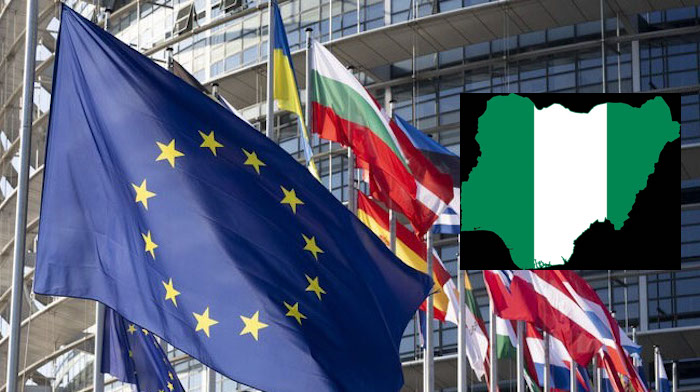Ola Akinwunmi
The European Union has named Nigeria among a list of high-priority countries failing to curb intellectual property (IP) violations, citing systemic gaps in enforcement, legislative delays, and Nigeria’s role as a regional hub for counterfeit goods.
In its biennial report, the EU’s Trade and Economic Security Commission flagged Nigeria alongside China, India, Türkiye, Argentina, Brazil, Ecuador, Indonesia, and Thailand for “significant concerns” over piracy and counterfeiting, which cost the bloc nearly €811 million in seized fake goods in 2023 alone.
The report unveils the outsized impact of IP theft on the EU economy, where IPR-intensive industries contribute nearly 50% of the bloc’s GDP and over 80% of its exports. With 17.5 million counterfeit items intercepted at EU borders last year—ranging from pharmaceuticals to electronics—the Commission warned that weak IP protections in third countries threaten Europe’s economic security and job creation.
China retained its position as the EU’s top concern, blamed for fueling global counterfeit supply chains. India and Türkiye followed as “second priority” nations, while Nigeria, Argentina, Brazil, Ecuador, Indonesia, and Thailand were classified as “third priority” offenders.
While acknowledging Nigeria’s efforts to strengthen its IP framework—including a 2022 National IP Policy and reforms under the Nigeria Customs Service Act—the EU criticized the country’s sluggish legislative progress. A key setback is the stalled Industrial Property Commission Bill, first introduced in 2016 to harmonize IP laws and establish a dedicated regulatory body.
Administrative inefficiencies also plague Nigeria’s IP regime. The Patents and Designs Registry faces chronic delays in trademark processing, and the absence of a Geographical Indications (GI) system leaves local products like Nigerian cocoa or textiles vulnerable to exploitation. The report further highlighted “alarmingly high” online piracy rates and opaque operations of copyright collectives, despite new anti-piracy units.
A glaring concern is Nigeria’s role as a transit hub for counterfeit goods, particularly through its seaports. Fake medicines, electronics, and fashion items—often originating from China—are channeled through Nigeria to neighboring West African markets. “Counterfeit medical products and electronics manufactured in China are routinely re-exported from Nigeria, endangering regional public health and economies,” the report stated.
Enforcement remains crippled by poor funding, untrained personnel, and judicial bottlenecks. Nigerian courts lack technical tools to handle complex IP cases, resulting in inconsistent rulings. The EU urged Nigeria to adopt international standards, including the World Trade Organization’s TRIPS Agreement, into national law to modernize its framework.
The EU’s findings signal heightened scrutiny of trade partners as it prioritizes economic security. For Nigeria, long criticized for IP weaknesses, the report serves as both a warning and a roadmap. While the 2022 IP policy offers a foundation, the EU emphasized that “measured progress must translate to tangible results” to avoid economic isolation.
As global counterfeit networks expand, the EU’s watchlist amplifies pressure on Nigeria and others to align with global standards—or risk reputational and trade repercussions in an increasingly IP-driven world.

